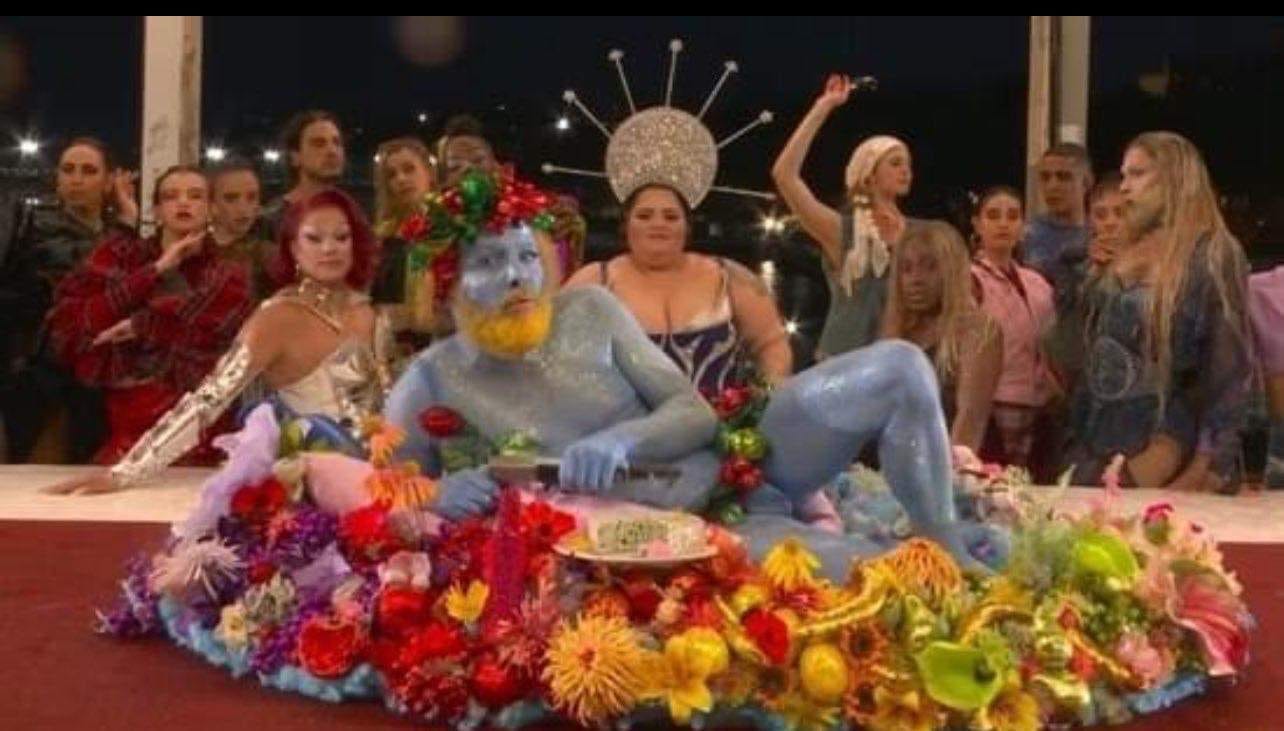The Oscar-winning 1981 film Chariots of Fire is a type of modern morality play embedded in a contest of athletic virtue and strength. Based on the true story of two admirable British sprinters competing in the 1924 Paris Olympics, the moral drama is not in a battle between virtue and vice so much as in a study of the contrasting responses to the film’s overarching question about human achievement: “where does the power come from?”
For his foil, Harold Abrahams, an English Jew who fights tooth-and-nail against the bigotry of the English establishment, the answer is that it comes from within. A modern Achilles, Abrahams has a burning ambition to win, to see his own glory acknowledged, an end to which he will pursue all fair means. For Liddell, the motivation is less certain, perhaps even to him. A devout Scottish Christian, his own dear sister charges that he is driven by the same selfish ambition as Abrahams.
The proof only finally comes when Liddell is put to the test at the Paris Olympics. When he learns that he must run a heat on a Sunday, he is devastated, but determines not to run. Even the Prince of Wales, the heir to the throne, cannot persuade him because, as Liddell notes, even for the heads of nations “it’s a question of authority.” The conduct of the European powers in the Great War is therein implicated.
Liddell won’t go against his conscience and run on the Lord’s day. Whereas Abrahams runs for his own glory, he runs for the glory of God.
While both men do ultimately triumph, Liddell in an event for which he had not qualified, the signs of victory are written on their faces. As they cross the tape, whereas Abrahams has a face like thunder, Liddell’s head is thrown back, his countenance lit up in ecstasy.
There is no ambiguity about the ending. At the start of the 400m final, Liddell is handed a note with a biblical reference – “It says in the good book, ‘He who honours me, I will honour.”
The Christian tradition that I submit Liddell represents in that film exalts beauty, truth, and goodness. It does not view these transcendentals in abstraction or even reduce them to human achievement. It sees them united in the gracious character of God himself. The glory of human achievement ultimately comes from him.
The university, a medieval Christian institution, was once dedicated to the pursuit of this unity in diversity, and there are monuments of that same belief still evident in the cathedrals and churches scattered around Europe, in the architecture of its older cities, and on the walls of the art galleries such as the Louvre in Paris itself.
The nihilism and Communism that dominated the affections of the French elites after the Great War over the course of the twentieth and twenty-first centuries has largely destroyed the ties with its own deep culture. It is not a matter of neglect, but rebellion against authority, against the very grounds of beauty, truth, and goodness. As Jean-Paul Sartre put it, “for those who want ‘to change life’, ‘to reinvent love’, God is nothing but a hindrance.
This rebellion against authority is, indeed, evident among the elites throughout the Western world. Sometimes it is demonstrated in particularly lurid fashion.
Case in point: let us juxtapose the artistic representation of the Opening Ceremony of the Paris Olympics of 2024 with those depicted a century earlier.
Rather helpfully, it is not I but the organizers of the 2024 Paris Olympic Committee who have invited the comparison by choosing a mocking parody of Leonardo da Vinci’s mural painting of The Last Supper.
Leonardo’s painting, pivotal to the transition to the High Renaissance, dramatizes in its deceptively simple composition the complex emotional responses of the twelve disciples to Christ’s prediction that one of them will betray him. At the same time, the scene represents his grace in instituting the Eucharist, a way of sustaining them spiritually in a life that will result from his death.
Da Vinci represents in his timeless art the continuously enacted sacrament of the church to this very day. The painting is a perfect vehicle for the content of the message.
It’s hardly uncharitable to observe that even on its own merits seen in isolation, the Paris Olympic Committee’s artistic choice to choreograph a dozen drag queens surrounding a figure with a halo, who are served up a scantily clad blue man on a platter is done in shockingly bad taste. It is a scene so grotesque and bizarre that anyone with a hint of sensibility must recoil in disgust.
Yet when one considers that the display deliberately courts comparison with Leonardo’s work of almost matchless grace, it is hard not to pity the combination of self-absorption and self-loathing that could have inspired such a humiliating performance.
Some Christians have rightly protested it, but many of us are also saddened at the descent of the French nation into a culture of nihilism and despair and open humiliation on the world’s stage. The contrast between the High Renaissance and this nadir is stark indeed.
Edmund Burke, in his Reflections on the Revolution in France, predicted that the lack of chivalry shown towards Queen Marie Antoinette would spell disaster for all women, and even the nation itself. A world without dignity or etiquette reduces a Queen to be ‘but a woman, a woman… but an animal, and an animal not of the highest order.” It seems a prophesy not just the blasphemy on full display in Paris 2024, but a culture of death and the mockery of women.
I pray that the the macabre display of the severed head of Marie Antoinette singing “ça ira” (‘it will be fine’) at these same Paris Olympics not be the final word on that once proud nation. However garishly Leonardo might be imitated, God will not be mocked.
It’s not only a matter of aesthetics. It is a question of authority.








